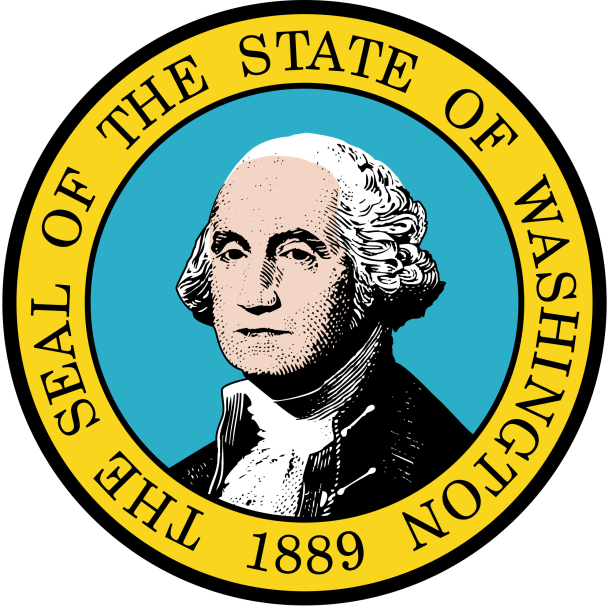To become ordained in Washington State, you can apply through an established religious organization or online ministry. Once ordained, make sure to familiarize yourself with the state’s marriage laws and requirements for officiating weddings.
Each religion or online ministry may have specific steps and requirements for ordination, so make sure to follow their guidelines. Whether you plan to perform ceremonies as a religious leader or as a civil officiant, understanding the legal process and requirements is crucial.
Becoming an ordained officiant in Washington State is a straightforward process, typically involving an application through a religious organization or online ministry. Upon ordination, familiarizing yourself with the state’s marriage laws will ensure you meet all necessary requirements for officiating weddings. Different religious bodies or online ministries may have specific steps and prerequisites for ordination, so carefully follow their guidelines. Whether intending to conduct ceremonies as a religious leader or civil officiant, grasping the legal process and obligations is fundamental.
Requirements for Ordination
To become ordained in Washington State, there are several requirements that aspiring ministers must meet. These requirements include:
Age and Residency
In Washington State, there are no specific age requirements to become ordained. However, most religious organizations require ordained ministers to be at least 18 years old. Additionally, applicants must be residents of the state, providing proof of residency such as a valid Washington State driver’s license or identification card.
Criminal Background Check
Before being ordained in Washington State, individuals must undergo a thorough criminal background check. This requirement is in place to ensure the safety and integrity of religious organizations and their communities. Applicants must disclose any prior criminal convictions and provide supporting documentation, such as court records or a certificate of rehabilitation.
The criminal background check is performed by the Washington State Patrol and may include a review of both state and federal records. It is important to note that certain criminal convictions may disqualify an individual from being ordained, depending on the nature of the offense and its relevance to their role as a minister.
Choosing an Ordination Organization
To become ordained in Washington State, selecting the right ordination organization is crucial. Seek a reputable organization with clear requirements and ongoing support for a seamless ordination process. Conduct research to ensure the organization aligns with your beliefs and values for a meaningful experience.
Researching Options
Research different ordination organizations available in Washington state.
Check online reviews and ratings to get an understanding of their reputation.
Visit their websites to gather information about their services and values.
Comparing Benefits and Requirements
Compare the benefits offered by each organization, such as support, resources, and community.
Review the requirements for ordination, including any necessary training or fees.
Consider which organization aligns best with your beliefs and goals for ordination.
Also Read: How to Become a Quaker
Understanding the Application Process
To become ordained in Washington State, it is essential to understand the application process. This process involves completing forms and submitting the required documents.
Completing Forms
When applying for ordination in Washington State, ensure you carefully and accurately complete all necessary forms.
Submitting Required Documents
After filling out the forms, it is vital to submit the required documents, such as proof of identity and any relevant certifications.

Credit: www.ulc.org
See Also: How to Become Chief of Police
Preparation for Ordination
Becoming ordained in Washington State requires thorough preparation to understand the duties, responsibilities, and necessary training or education. This guide will provide you with essential information on how to navigate this process and embark on your journey towards ordination.
Training or Education
Training or education is a vital component of preparing for ordination in Washington State. Aspiring clergy members need to undergo formal instruction that equips them with the necessary skills and knowledge for their role. This can involve enrolling in theological seminaries, divinity schools, or other religious educational institutions where they can receive comprehensive guidance.
To get started, research the various training options available in your area. Look for programs that align with your specific religious denomination and offer courses that cover subjects such as scripture, theology, pastoral care, and leadership. Keep in mind that different religious organizations may have their own specific requirements, so it’s important to understand their expectations and tailor your education accordingly.
If you’re unsure where to begin or need further guidance, consider seeking advice from individuals who are already ordained within your religious community. They can provide valuable insights and recommendations based on their own experiences and may be aware of specific educational institutions or programs that are highly regarded.
Understanding Duties and Responsibilities
Aspiring clergy members must gain a comprehensive understanding of the duties and responsibilities that come with being ordained in Washington State. Different religious denominations have specific expectations, but in general, clergy members are responsible for leading religious services, providing guidance and support to their congregation, and officiating ceremonies such as weddings, funerals, and baptisms.
Additionally, clergy members often play a crucial role in fostering a sense of community and spiritual growth within their congregations. They may provide counseling services, lead educational programs, and engage in outreach initiatives to serve the broader community. Understanding these various responsibilities is crucial to determining whether ordination is the right path for you and to effectively carry out your duties once ordained.
To gain deeper insights into the duties and responsibilities associated with ordination in your religious tradition, consult religious texts, engage in discussions with ordained individuals, and participate in various religious activities within your community. This hands-on approach will provide you with firsthand experience and a clearer sense of what your future role will entail.
Legal Responsibilities and Obligations
As an ordained minister in Washington State, it’s essential to understand the legal responsibilities and obligations that come with this role. From abiding by marriage laws to ensuring all necessary paperwork is filed correctly, navigating the legal aspects of ordination is crucial for performing marriages in a lawful manner.
Understanding Marriage Laws
Before conducting any marriage ceremonies in Washington State, it’s imperative to have a thorough understanding of the state’s marriage laws. This includes knowing the legal requirements for a valid marriage, such as the minimum age for marriage, as well as any restrictions on who can legally officiate a wedding. You must also comprehend the process for obtaining a marriage license, the waiting period, and any specific requirements based on the couple’s circumstances.
Filing Necessary Paperwork
Once you have a comprehensive grasp of Washington’s marriage laws, the next step is to ensure all necessary paperwork is filed accurately and timely. This includes obtaining the couple’s marriage license, completing the marriage certificate, and returning it to the appropriate county office within the designated timeframe. Filing all required documentation correctly is essential to legally solemnize the marriage and protect yourself from any potential legal issues down the road.
Other Considerations
Tax Implications
In Washington State, individuals who are ordained may be considered self-employed, and therefore responsible for their own taxes. It is essential to keep accurate records of income and expenses, and consult with a tax professional to ensure compliance with state and federal tax laws.
Additional Certifications or Licenses
Beyond becoming ordained, individuals in Washington State may need additional certifications or licenses depending on the specific type of religious or spiritual practice they plan to engage in. This could include counseling certifications, special permits for religious counseling, or specific licenses required for conducting certain ceremonies.
Maintaining Ordination Status
To maintain ordination status in Washington State, individuals must complete the required training and obtain approval from a recognized religious or spiritual organization. It is essential to comply with all legal and regulatory obligations to ensure continued ordination status. Keep in mind that maintaining ordination status may involve regular professional development and adherence to ethical standards.
Maintaining Ordination Status Once you have become ordained in Washington State, it is important to understand the requirements and procedures for maintaining your ordination status. Failure to do so could result in the loss of your ordination and the inability to perform certain religious duties. In this section, we will discuss the two key aspects of maintaining ordination status: Continuing Education Requirements and Renewal Procedures.Continuing Education Requirements
To ensure the continued growth and development of ordained individuals, Washington State mandates certain continuing education requirements. These requirements are designed to keep you informed about changing laws, maintain ethical standards, and enhance your knowledge in various areas of religious practice. By staying up-to-date with the latest developments in your field, you will be better equipped to serve your community and fulfill your duties as an ordained individual.Renewal Procedures
Renewing your ordination is a crucial step in maintaining your status as an ordained individual in Washington State. It is essential to be aware of the renewal procedures to avoid any interruption in your ability to perform religious ceremonies and fulfill your obligations. The renewal process typically involves submitting an application, paying the required fees, providing any necessary documentation, and meeting specific deadlines. By following these procedures diligently, you can ensure that your ordination remains active and valid. Whether you are a minister, priest, rabbi, or other religious leader, maintaining your ordination status in Washington State is vital. By fulfilling the necessary continuing education requirements and adhering to the renewal procedures, you can continue to carry out your important religious work and serve your community effectively. Remember, staying informed, engaging in ongoing education, and keeping your ordination current are all crucial steps in maintaining your ordination status in Washington State. By dedicating yourself to these requirements, you can ensure that you remain a respected and recognized religious leader in your community.
Credit: www.ulc.org
Resources and Support
Discover the resources and support you need to become ordained in Washington State. From step-by-step guidelines to helpful tips, this comprehensive guide will assist you on your journey to ordination. Gain the knowledge and tools necessary to pursue your calling with confidence.
Resources and Support In Washington State, aspiring officiants can find valuable resources and support to guide them through the process of becoming ordained. Whether you are interested in community networking opportunities or seeking guidance for officiating ceremonies, there are resources available to help you along the way.Community Networking Opportunities
Engage with local religious organizations or community groups to build connections. Join online forums or social media groups for support and advice from experienced officiants. Attend workshops and events to enhance your skills and network with other officiants.Guidance for Officiating Ceremonies
Consult with established officiants for mentorship and practical tips. Utilize online resources and guides to learn about ceremony scripts and legal requirements. Practice conducting ceremonies with support from friends or fellow officiants. Through these resources and support systems, individuals in Washington State can confidently pursue ordination and embark on their journey as officiants.
Credit: www.christianleadersinstitute.org
Conclusion
Becoming ordained in Washington State is a straightforward process that allows individuals to legally perform ceremonies. By following the guidelines and requirements outlined in this blog post, you can take the necessary steps to become ordained quickly and easily. From submitting your application to completing any additional legal requirements, the journey to becoming ordained in Washington is within reach.
Start officiating weddings and other ceremonies confidently knowing that you are officially recognized and authorized to do so in the state.
